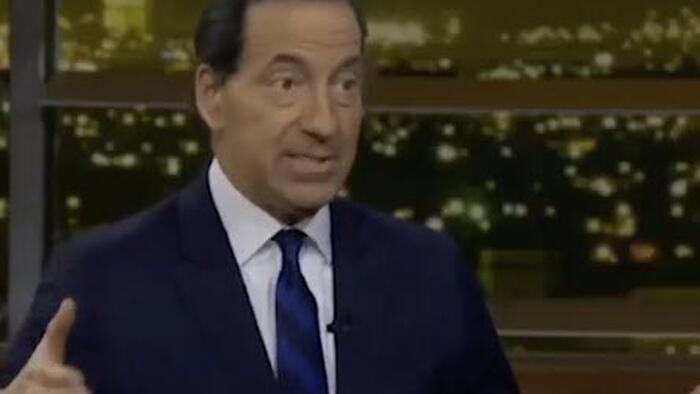In a recent appearance on Bill Maher’s HBO show, Rep. Jamie Raskin (D-MD) reiterated his skepticism about accepting the results of a potential Trump victory in the upcoming presidential election, tying his stance to the concept of a “free and fair” election. Raskin’s comments echoed those made by Trump in the past, wherein Trump expressed conditional acceptance of election outcomes based on their honesty. Raskin has previously indicated his reluctance to certify a Trump win, suggesting that Congress may deem Trump disqualified should he win, thus leading him to envision potential unrest and “civil war conditions” resulting from such a scenario. This raises questions about the implications of political rhetoric surrounding electoral integrity and the peaceful transfer of power.
During the HBO segment, Raskin insisted that Democrats would only uphold the election results if they deemed the process legitimate, signaling his unwillingness to accept results he perceives as potentially manipulated by state actors or the justice system. He underscored this point by declaring that while Democrats have historically honored electoral outcomes, this would not apply in cases they believe involve dishonest practices. Such statements suggest a deepening divide in political discourse regarding the trustworthiness of electoral processes, especially as the election approaches.
Maher acknowledged Raskin’s assertions as reflective of a historical commitment by Democrats to honor election results, yet many critics highlight the inconsistency this reveals. Historical examples, such as the challenges to the certification of George W. Bush’s 2004 re-election and the 2016 election results, illustrate that rhetoric surrounding electoral disputes has been employed by both parties when results are unfavorable. This not only undermines Raskin’s argument but also suggests a pattern where both parties may seek to delegitimize the electoral process based on their political agendas.
Raskin’s contention that efforts to thwart votes for Trump exemplify democratic principles raises significant debates about the essence of democracy itself. His argument pivoted on the idea that disqualifying candidates involved in insurrection is a choice made by the electorate, implying a novel interpretation of democratic engagement that invites further scrutiny. The rhetorical framing offered by Raskin aligns with the broader Democratic agenda, which has increasingly included measures aimed at restricting Trump’s candidacy and challenging staunch Republican figures, thus revealing the heightened tensions leading into the election.
As the political landscape grows increasingly contentious, alarming trends in election-related challenges are surfacing. These challenges are not limited to voters or candidates, as there are reports of systemic fraudulent registrations in multiple districts becoming a focal point of concern. Raskin appears to expect that any backlash from declared “losers” will be managed peacefully, though the historical volatility associated with such scenarios could prove otherwise, underscoring a potentially volatile election climate.
As the election draws near, the stakes continue to rise. Raskin’s call for a determined Democratic response reflects both the urgency and anxiety permeating the political atmosphere as election day approaches. In light of these dynamics, observers anticipate a tumultuous period ahead, echoing broader issues of electoral faith, political legitimacy, and societal division that have characterized American politics in recent years. Turley’s perspective serves to highlight the critical nature of these debates as they could delineate not only the outcome of the election but the broader implications for American democracy itself.

